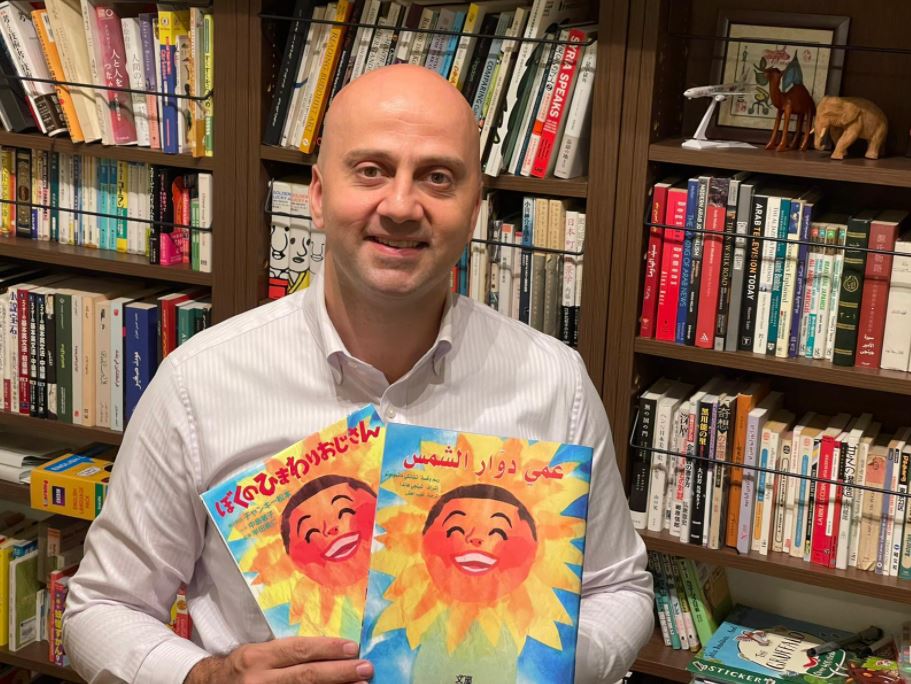

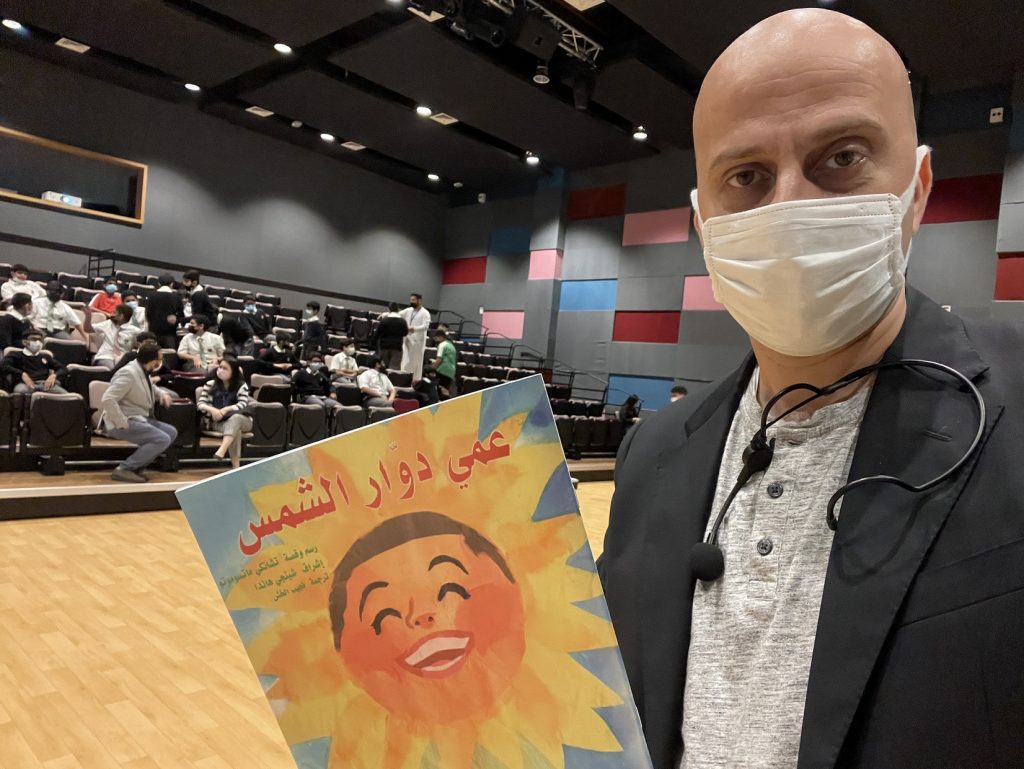
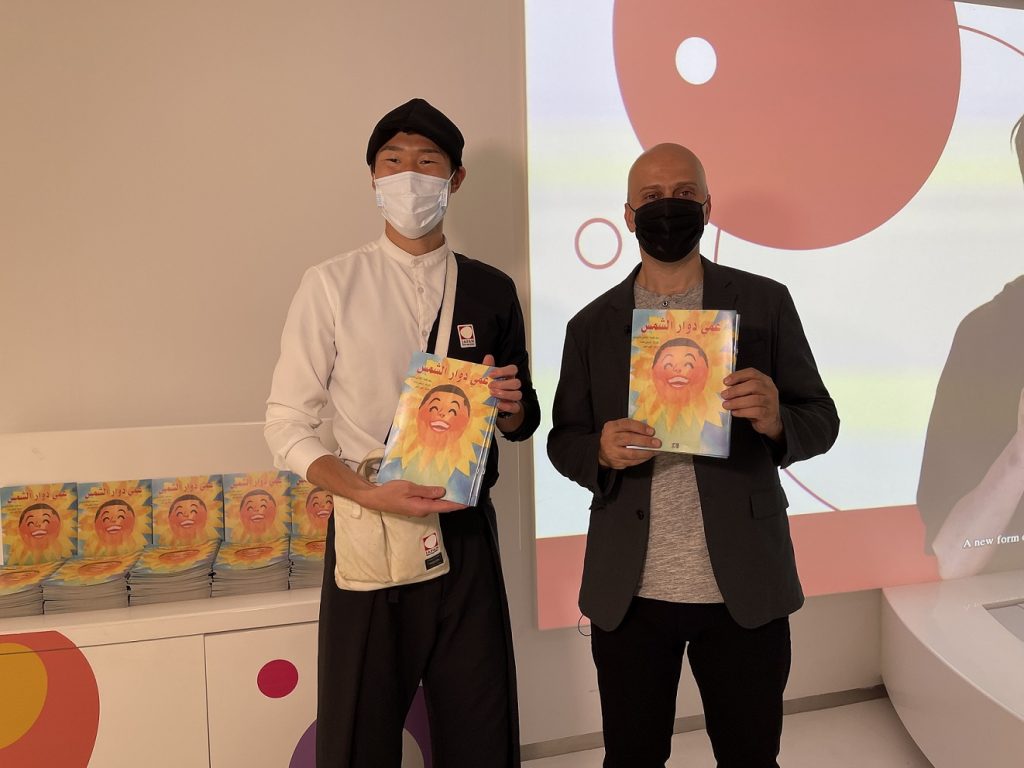
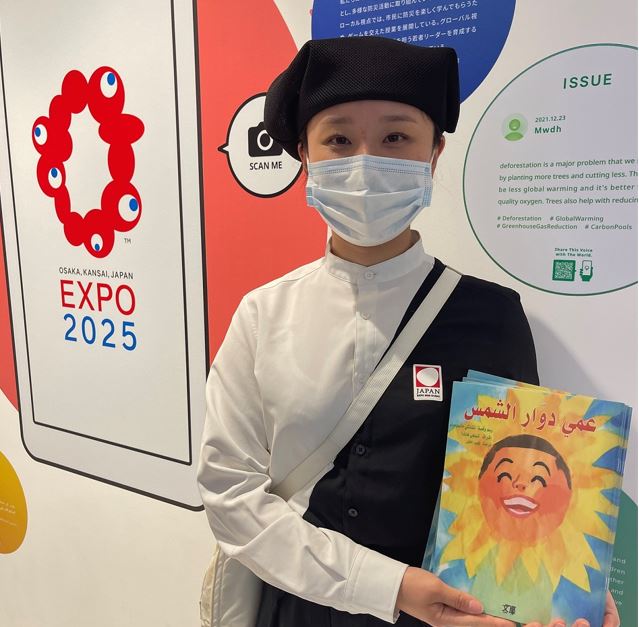
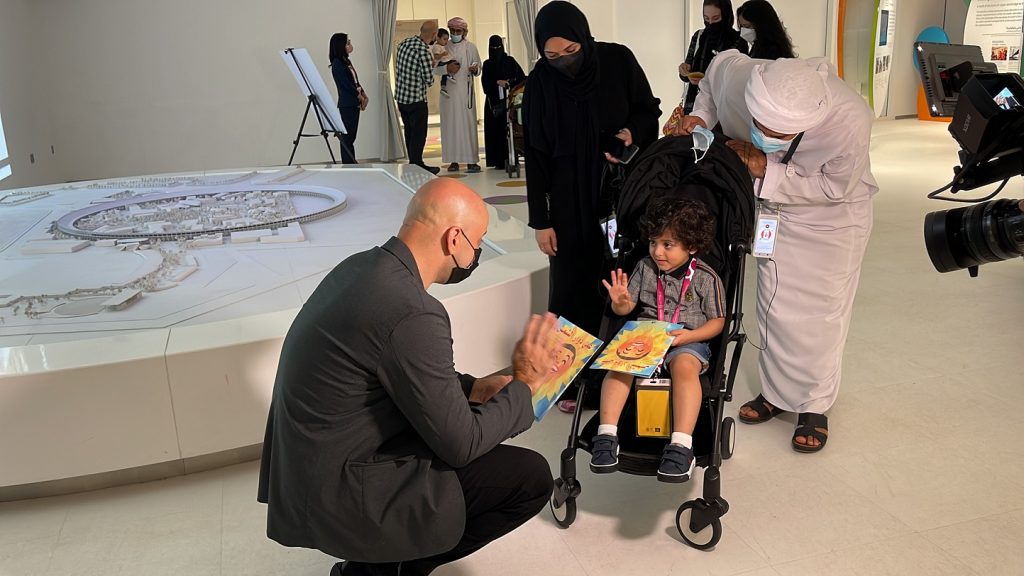
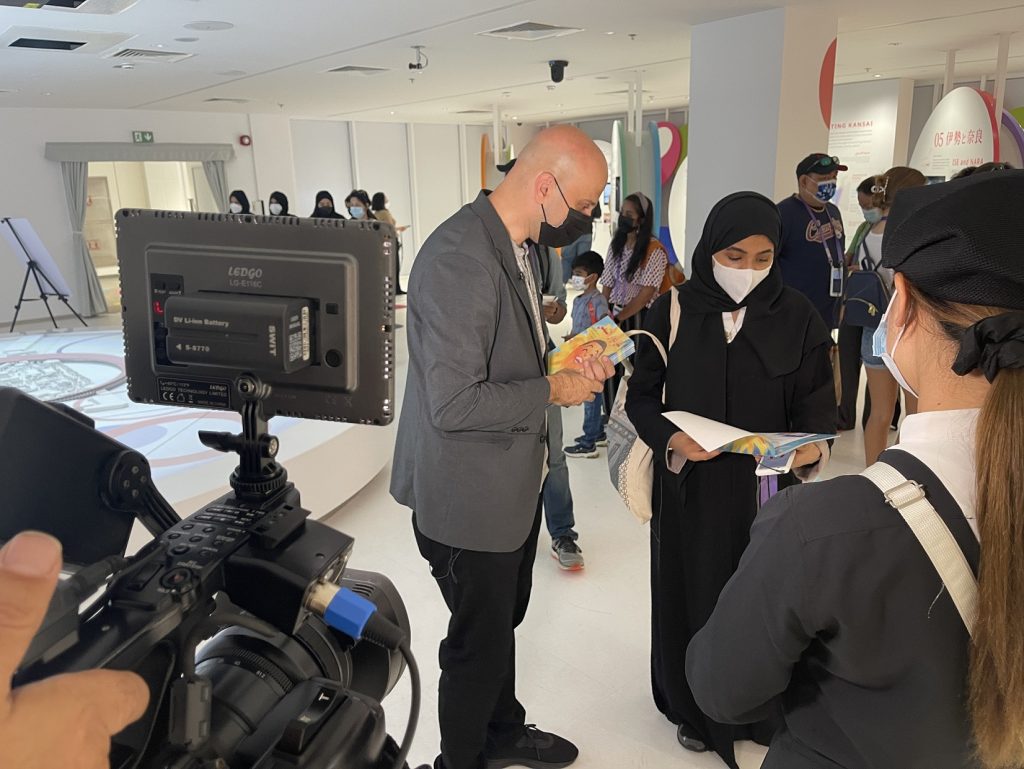







Arab News Japan
Commemorations were held in Dubai on the 11th anniversary of the earthquake and tsunami disasters that struck Japan’s Tohoku region on 11 March 2011.
At GEMS Al Barsha National School, journalist Najib El Khash read out the Japanese children’s book “My Uncle Sunflower” to students.
El Khash has lived in Japan since 1997 and is a correspondent for Dubai TV and other Arab media outlets. He has extensively covered the disaster-struck region since 2011.
The Syrian journalist insists on commemorating the disaster every year, and translated the Japanese book to Arabic last year, on the 10th anniversary of the disaster.
El Khash said he did not want the world to forget about what happened to the Syrian people, and he in turn, will not allow himself to forget what happened to the people of Tohoku. “I will continue to offer my small contributions, so the world knows what happened there.”
The book narrates the story of a child who had to evacuate his home in Fukushima Prefecture after the disaster, and his efforts to return to his town.
As El Khash spoke to people in the affected region of Tohoku, he “couldn’t help notice the striking similarities between their experiences and those I know about of Syrian refugees.”
The journalist stressed how “the experience of leaving one’s home, with all the precious belongings and memories, and not being able to return,” that “especially affects the kids who sometimes do not even really understand what is happening.”
The process of narrating tragedies to a listener “definitely has a healing effect,” he told Arab News Japan, after observing “very touching” interactions between victims, which reinforced his belief that translating the book was the right thing to do.
The character of Uncle Sunflower in the book is based on a real farmer, known as Shinichi Sakuma, who launched the ‘Sunflower Project.’
He had transformed a field of sunflowers into a venue for weddings and celebrations. The idea of the initiative is to encourage Japanese people from all over the country to plant sunflowers in their home gardens, then send their seeds to Fukushima for Sakuma and a team of volunteers to plant.
Another event was held at the Japan Pavilion of the Expo 2020 Dubai, where copies of the same book were distributed to Arabic-speaking children who visited the pavilion.
“It was a nice location for distributing the book, because people who had been through one of the most successful pavilions in the Expo, end up knowing more about Japan,” he told Arab News Japan.
El Khash stressed how distributing the book at Dubai’s successful Expo, which he describes as a tool to connect human communities, gave it “a special meaning.”
El Khash’s efforts to share the book and its underlying message extend beyond Expo as the book has received support from the Consulate of Japan in Dubai, during the celebration of the 50th anniversary of the establishment of diplomatic relations between Japan and the UAE, commemorated with a range of ongoing activities this year.
El Khash made sure to express gratitude for the management at Japan Pavilion and their efforts, and also extended thanks to the administration team and students at GEMS school for welcoming him once more.
There is still more to come for this literary gem including possible plans to publish the book with the UAE Board on Books for Young People (UAEBBY) who will distribute copies at a refugee camp in Jordan.
El Khash is enthusiastic to see how the book with grow from here, but plans to expand its reach by making it easily accessible for anyone hoping to read it.